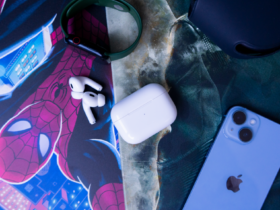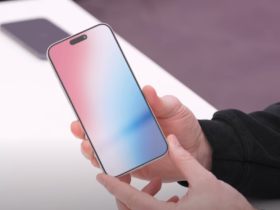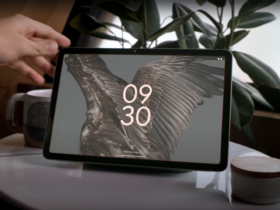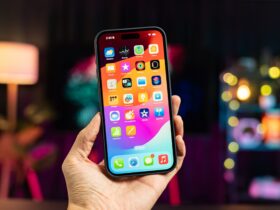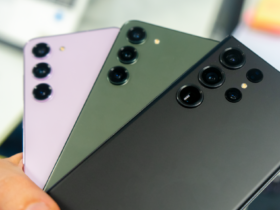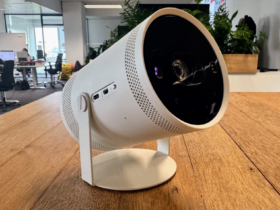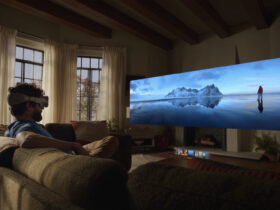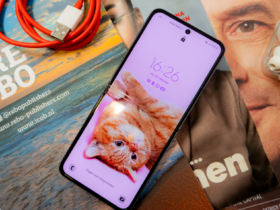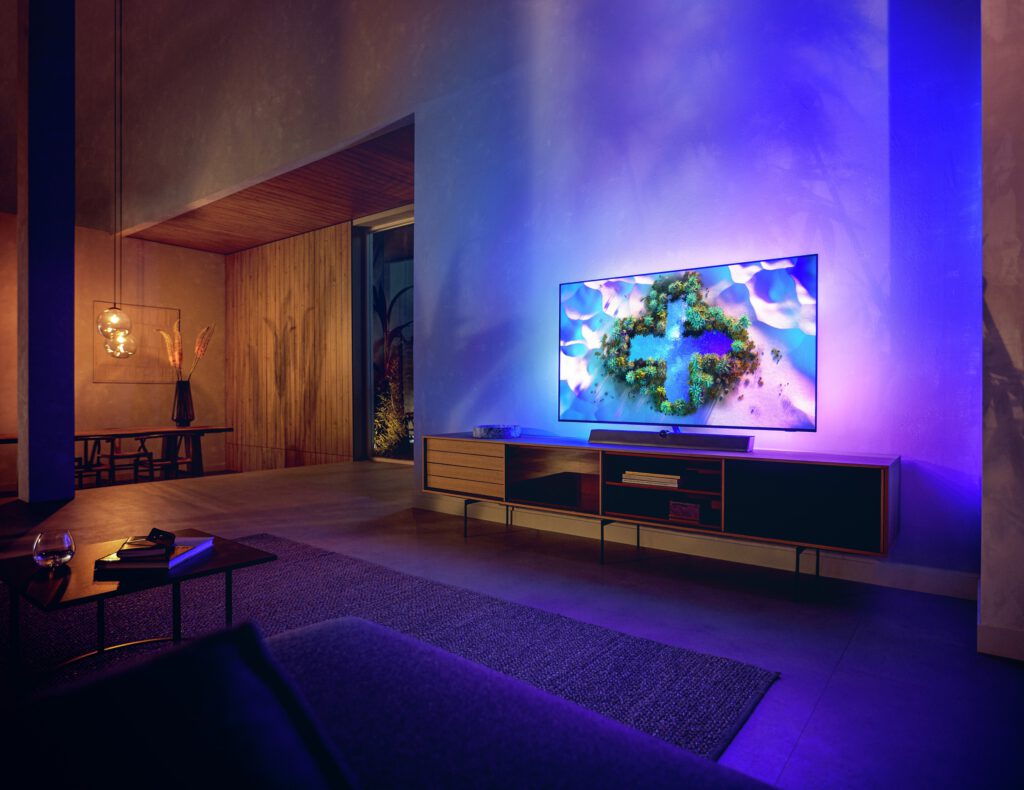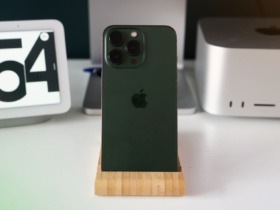An OLED television provides fantastic picture when you watch a movie or series. One major drawback of the television now seems to be solved: burnout.
An OLED television has quite a few advantages over a regular smart TV. Perhaps the most important is that black really is black. This is because all pixels are individually illuminated. You therefore have even better contrast and more realistic images.
One of the disadvantages of OLED TVs is that because of that technology, televisions can burn out more easily. Scientists at the University of Cambridge seem to have solved that problem.
How can OLED televisions burn out?
Let’s dig a little deeper into burn-in, because how exactly can it happen? The pixels of an OLED TV are made up of organic materials. If these display the same image for a long time in a row, they can degrade and burn in. The best-known example of this is, for example, a logo sitting at the top of a screen. Blue OLEDs in particular are a problem.
Fortunately, many OLED televisions have protection built in for this. For example, your television may allow a pixel to change color unseen for a moment or turn off while you watch.
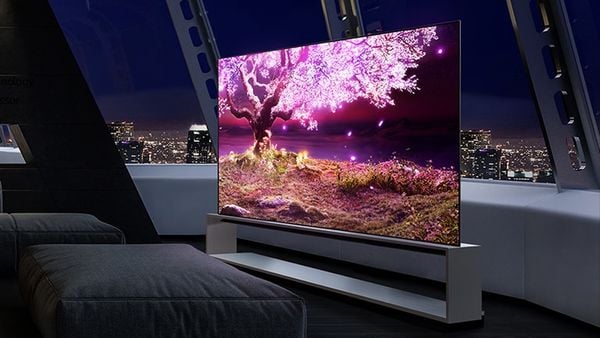 An OLED display from LG (Image: LG)
An OLED display from LG (Image: LG)
Still, it would be nice to not have to worry about this problem at all, and the University of Cambridge seems to have the solution. The results were published via the scientific medium Nature.
The scientists have designed ultrasmallband blue emitters that can avoid the unwanted energy transfer of blue OLEDs. They use special diodes that emit the blue light along the narrow-band spectrum. Because the core is insulated with alkylene bands, the unwanted energy transfer can be suppressed. As a result, the pixels are more efficient and stable.
Only advantages
In simple human terms, it means that OLED panels last longer, are more resistant to burn-in and are also easier to manufacture. By eliminating unwanted energy transfer, the OLED panel also becomes more economical and efficient.
These are huge advantages which ensures that your smart TV will last much longer and can also become a lot cheaper. Moreover, this also benefits other devices. OLED screens, for example, are also in many phones, and because of the efficiency, they use less electricity, giving you longer battery life.

Listen to Freakin’ Nerds
Every week we take an even deeper look at tech, pop culture and science in our podcast Freakin’ Nerds. With this week:
Banning TikTok benefits Joe Biden
Photoshop skills of Kate Middleton
3 Body Problem on Netflix
Of course, that doesn’t mean these benefits are there right away. It’s still in the research phase so manufacturers need to figure out how to adjust the production process. In any case, it is very hopeful.




